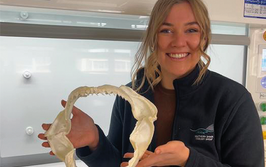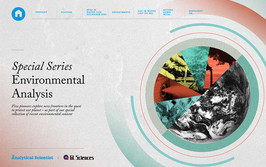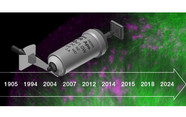Koen Sandra

CEO and Co-owner, RIC group; Visiting Professor, Ghent University; Belgium
A problem interdisciplinarians should tackle? As analytical scientists, we are a crucial piece in a bigger puzzle. At RIC, we’ve been involved in the development and authorization of various biotech drugs – and the route from discovery to approval is a perfect example of different disciplines and expertise joining forces to reach the ultimate goal of bringing life-changing treatment to patients.
Being active and knowledgeable in diverse application domains is beneficial for addressing complex analytical questions. Recent cases that fall into this category include the characterization of mRNA vaccines and gene therapy products – with knowledge of lipids, nucleic acid, proteins, and particle analysis is indispensable. Additionally, interdisciplinary work can help us solve problems related to correlation or particle formation in antibody formulations, poor bioreactor yields, and de-emulsification in vaccine productions.
Another example includes the crucial interdisciplinary works during the unprecedented global pandemic that helped halt its spread. Despite the monumental challenge we were faced with, scientists faced this challenge head on. In our lab, we self-funded and developed an alternative diagnostic assay to address the scarcity of reagents. This applied use of mass spectrometry for SARS-COV2 detection was published with a significant number of authors and affiliations – showcasing the importance of collaborative work across fields.
The secret to a successful interdisciplinary collaboration? “If you want to go fast, go alone. If you want to go far, go together.” One of our core values as a company is “stronger together” – we have no room for big ego’s. I still have to meet that multi-disciplinary know-how-to-do-it-all superhero. Even if that person did exist, humility is still the true key to success. Partnerships that lack trust and respect draw us away from our core values are doomed to fail.




















